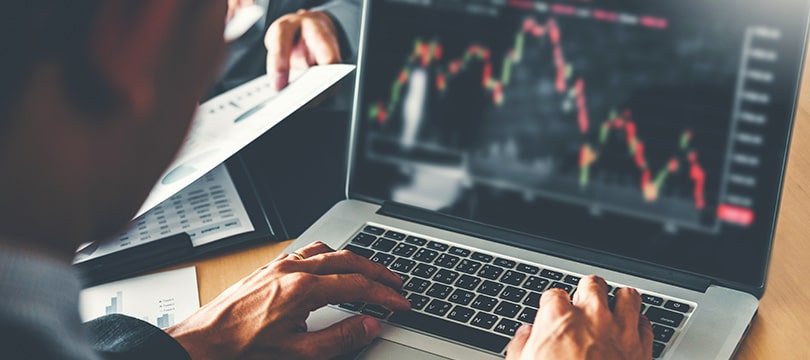Systemic Risk is one of the worst dangers for Forex traders, as well as for any other type of investor. It is therefore essential to know about it, understand the causes that trigger it, and comprehend its manifestations. Only in this way is it possible, albeit to a limited extent, to prevent and defend against it.
What is Systemic Risk?
The first step is to understand what systemic risk
really is. Here is a clear and exhaustive definition:
Systemic risk is a type of risk that affects the entire financial system, generating a chain reaction
on all the actors involved. It is caused by factors external or internal to the market, difficult to isolate or contain, and manifests itself in times of global or sectoral crisis.
Here is a list of the
main systemic risks that may emerge during a trader's professional life:
- Global economic crises: recessions or economic depressions can put markets under pressure, creating unpredictable conditions. These events can stem from financial crises, speculative bubbles, or macroeconomic events.
- International political instability: geopolitical conflicts, government changes, or legislative instability can drastically alter asset values, making markets extremely volatile.
- Shocks in commodity prices: sudden events involving fundamental goods, such as oil or gold, can generate economic imbalances and change the relationships between assets.
- Collapse of financial institutions: the failure of large banks or brokers can generate panic, disrupt market liquidity, and increase global systemic risk.
Systemic Risk in Trading
As we have seen, there are various systemic risks. However, some of these not only represent a danger for the Forex trader but even an
existential risk for their operations:
- Failure of the banking system: a total collapse of the banking system can freeze markets, preventing traders from accessing funds or closing positions.
- Sovereign defaults: the non-payment of debts by a country can generate currency instability and panic, making trading almost impossible to manage.
- Drastic changes in monetary policies: sudden decisions by central banks, such as devaluations or changes in interest rates, can significantly disrupt markets.
- Collapse of trading platforms: malfunctions or sudden closures of online platforms can prevent traders from operating, causing huge losses in a very short time.
How to Predict Systemic Risk
Predicting systemic risk is the first step in reducing its impact. Here are some good practices:
- Monitor macroeconomic indicators: observing parameters such as economic growth rates, inflation, and trade balance can provide early warning signals of systemic instability.
- Analyze historical trends: studying economic cycles and past financial crises can help recognize recurring patterns and warning signs.
- Pay attention to warnings from financial authorities: reports from central banks, international financial institutions, and independent analysts can offer useful clues about imminent risks.
- Be aware of geopolitical signals: monitoring global and local political changes, as well as international events, can help understand how they might influence markets.
How to Defend Against Systemic Risk
Once systemic risk has manifested, there are some strategies to reduce its impact:
- Diversify your portfolio: investing in a diversified range of assets, including safe-haven assets such as gold or stable currencies, can reduce the impact of systemic risk.
- Use hedging instruments: hedging operations, such as options or futures, can protect against significant losses caused by unexpected market movements.
- Set strict stop-loss orders: automatic limits to close positions in case of excessive loss can safeguard capital.
- Maintain sufficient liquidity: having liquid reserves allows you to face periods of crisis without being forced to liquidate losing positions.
Knowing and managing systemic risk is essential for successfully operating in Forex and other markets. A prepared trader can limit damage and protect their capital, even in times of greatest uncertainty.




